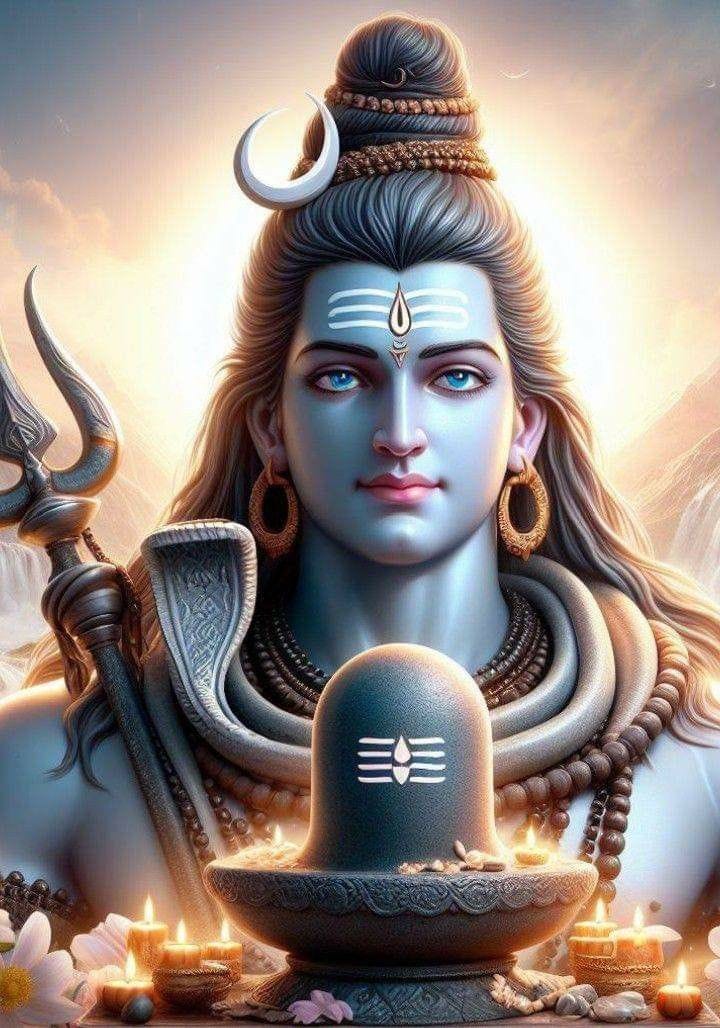Peace of Mind in the Age of Pressure – Answers from Sanatan Dharma
Conversations with Shri Shivanand Maharaj
Is There Real Progress and Peace of Mind in Today’s World?
Student: Guruji, you travel all around the country and even abroad. What do you observe during your travels? Is the world really progressing? And is there peace of mind?
Shri Shivanand Maharaj: Beta, this is a question many thoughtful young people are asking today. The world is indeed progressing - industrially, technologically, economically. Skyscrapers are rising, highways stretch across nations, people carry computers in their pockets. But I also see something else - a deep yearning, a silent cry. More and more people are searching for peace of mind. Many feel something essential is missing despite material abundance.
There are broadly two levels of human need:
The Physical – Food, shelter, clothing, money.
The Mental and Spiritual – Solace, meaning, inner peace.
While physical needs are important, mental and spiritual well-being are becoming increasingly urgent.
Student: Why do you think this is happening, Guruji?
Shri Shivanand Maharaj: Let me answer through a concept from the Taittiriya Upanishad, which speaks of the five layers (koshas) of human existence:
Annamaya Kosha – The physical body,
Pranamaya Kosha – The energy body,
Manomaya Kosha – The mind,
Vijnanamaya Kosha – The intellect,
Anandamaya Kosha – The blissful state.
Modern progress addresses only the first kosha - the body. We have food, clothes, even luxuries. But we are not nurturing the Manomaya or Anandamaya koshas. That’s why, even in affluent societies, there’s loneliness, depression, anxiety.
Student: But Guruji, don’t people in developed nations have everything they need? Why are they still unhappy?
Shri Shivanand Maharaj: Good question. Yes, they have more wealth, but do they have inner wealth?
Take a verse from the Bhagavad Gita (Chapter 2, Verse 70): "Apuryamanam achala-pratishtham samudram apah pravishanti yadvat tadvat kama yam pravishanti sarve sa shantim apnoti na kama-kami." Meaning: Just as rivers enter the ocean but it remains full and undisturbed, so too is the person at peace who is not disturbed by desires. But the one who desires endlessly, never finds peace.
Desires have no end. When one is fulfilled, another is born. So even the rich feel empty inside.
Student: Then what is the solution, Guruji? How do we find peace?
Shri Shivanand Maharaj: The solution lies in balance. In the Rigveda, there is a beautiful phrase:
"Dharmo rakshati rakshitah" – Dharma protects those who protect it.
We must revive Dharma, not as rigid rituals, but as a way of living in harmony - with ourselves, with nature, with society. When you live with Dharma - truth, compassion, self-discipline, gratitude - you experience peace, regardless of your bank balance.
Student: But what about those who are struggling even for basic needs?
Shri Shivanand Maharaj: Yes, beta, we must not ignore them. Compassion is the cornerstone of Sanatan Dharma. Our organization has been working to educate children in poor regions, teach skills to the unemployed, and offer hope where there’s despair. As the Atharva Veda says:
"Saha nau yashaha, saha nau brahmavarchasam" – May we grow together in glory and spiritual strength.
Both levels must be addressed:
Those struggling for survival must be empowered.
Those who have everything must be shown the path to inner peace.
Student: Are these feelings of emptiness new, or did people in ancient India also feel this way?
Shri Shivanand Maharaj: This human dilemma is ancient. But earlier, people had guidance from gurus, elders, and sacred texts. There was a culture of daily prayer, introspection, and contentment.
Today, we’ve lost touch with our roots. The Bhagavata Purana describes the Kali Yuga - our current age - as a time when confusion will reign and Dharma will decline. But it also says: “Even remembering the name of the Lord in this age grants liberation.”
Our heritage offers timeless solutions - but we must make the effort to reconnect with it.
Student: Guruji, you mentioned that even remembering the Divine brings peace. But in today’s busy world, people have no time for spirituality. How can they begin?
Shri Shivanand Maharaj: Time is never the issue, beta. It is about priority. The Katha Upanishad says: "Shreyo hi jñānam abhyasāt, jñānād dhyānam, dhyānāt karma-phala-tyāgah, tyāgāt shāntir anantaram." – The path of higher good is better than immediate pleasure. True peace comes not by chasing results, but by letting go.
Even five minutes of silence every morning - just sitting, breathing deeply, or chanting "Om" - can transform your mind. It realigns you with your true nature.
Student: Guruji, what is our true nature? Are we not just flesh and bones?
Shri Shivanand Maharaj: No, dear. You are not the body, nor the restless mind. You are Atman - pure, blissful consciousness. The Chandogya Upanishad declares: "Tat Tvam Asi" – You are That.
This means: You are not limited to this form. You are eternal, divine. Realizing this truth is the beginning of peace.
Student: But people say, “Be practical. What will meditation or chanting do when I have bills to pay, jobs to find?”
Shri Shivanand Maharaj: Sanatan Dharma is the most practical path, my child. It doesn’t ask you to run away from life, but to live with awareness.
Even Lord Krishna, in the Bhagavad Gita, did not tell Arjuna to renounce the world. He told him to fight - but with detachment, with inner peace.
Our ancients balanced both: material life (artha, kama) and spiritual life (dharma, moksha). That’s the essence of the Purusharthas - the four goals of life.
When you align your work with dharma, your life becomes a blessing - for you and for others.
Student: Guruji, you mentioned that depression and loneliness are growing even among successful people. Why is that?
Shri Shivanand Maharaj: Because we are living disconnected lives. From nature, from each other, from ourselves.
In ancient India, people lived in communities - joint families, villages, ashrams. Elders were respected, children were guided, values were shared.
Now, even within families, people are strangers. Everyone is looking into screens, not into each other’s eyes.
The Manusmriti warns of this: "When Dharma declines and Adharma rises, sorrow will spread like a plague."
But there is hope. Sanatan Dharma always gives hope. We must rebuild community, revive traditions, and bring Seva (selfless service) into our lives.
Student: Guruji, what can we, as young people, do today to make a difference?
Shri Shivanand Maharaj: Start small. Start with yourself. Begin your day with a mantra, even if it's just "Om Namah Shivaya". Read a few lines from the Gita or a simple story from the Puranas.
Then share that wisdom - online or offline. Talk to your friends about Dharma. Respect your parents. Help a stranger. Plant a tree. Feed a hungry animal.
These are not just good deeds. These are acts of Sanatan Dharma in action.
And when you fall, remember even the greatest seekers stumbled. But they rose again, because their hearts were connected to the Truth.
Student: Guruji, how do you remain so peaceful despite all the problems in the world?
Shri Shivanand Maharaj: I was orphaned at 15. I wandered, hungry, confused. But every time I sat near a river, or read a line from the Vedas, I felt a presence - something sacred, eternal. That presence is in you too.
I found peace not by avoiding sorrow, but by embracing life as it is, and living each moment as a prayer.
As the Isa Upanishad says: "Ten tyaktena bhunjitha, ma grdhah kasya svid dhanam"
– Enjoy life through renunciation; do not covet others' wealth.
When we live in surrender, everything becomes sacred.
The world may offer comforts, but only Dharma offers true peace.
Let us walk this path together.
My eBook on Amazon : https://tinyurl.com/3k28mdnu
My Author Page: https://tinyurl.com/yu32dduu





